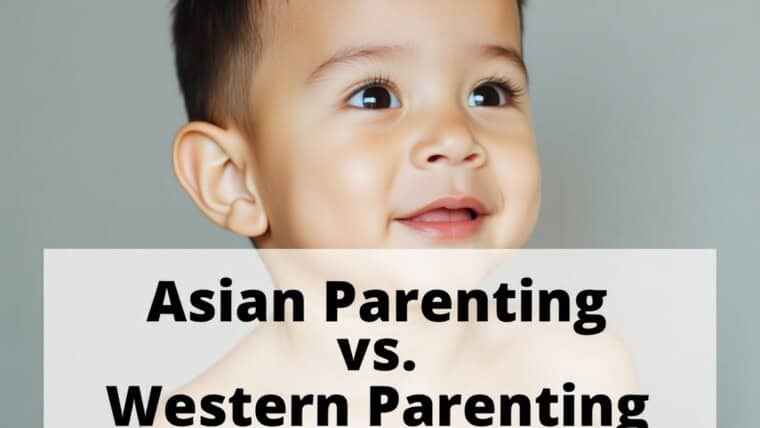According to experts, parenting meets all the criteria of art alongside scientific knowledge. Your guidance between the ages of 5 and 12 plays a decisive role because it forms their values, emotional development, and independence skills. Children in this age span normally develop 90% of their emotional intelligence.
Positive parenting fulfills a crucial function for this reason. This article presents applicable guidance for building a supportive bond with your child because it helps their personal development and happiness.
Understanding the Developmental Stages of 5-12-Year-Olds
The growth patterns of 5-12-year-olds mature like caterpillars turning into butterflies; each journey is distinctive. Children at this stage experience rapid cognitive, emotional, and social development. Children in the 5-7 age range exhibit new capacities in basic problem-solving and language skills at the start of their developmental stage, and later 10-12-year-olds show improvement in critical thinking abilities as they build friendships with advanced dimensions.
The process of managing their emotions becomes challenging for younger children who are still developing emotional control when displaying tantrums. The journey of preteens involves navigating multiple emotional factors, ranging from gaining independence to dealing with peer influence. Young children tend to play cooperatively, but older kids build profound friendships before defining their identity. Your child will develop independently, so you must adjust according to their specific developmental speed.
Playing with blocks instead of reading at age 7 does not indicate anything wrong, even though it may be different from what typical development looks like. Look out for developmental points in your child; however, maintain awareness that young individuals progress at different individual rates. Small accomplishments and the chance for children to discover things should be actively supported through appreciation.
Building Emotional Intelligence Through Positive Reinforcement
Children develop emotional intelligence better when you use positive recognition. Praising children effectively boosts their development when you point out exactly what they did well. Let me tell you, I am extremely pleased with your mathematics problem solution. Your children realize you see their hard work beyond the results. Advancing emotional intelligence requires you to both identify and show proper respect for how your children feel.
Your child will develop emotional understanding through your simple statement that lets them know you see their frustration so they can share their feelings with you. Instead of conceding, you demonstrate your emotional support. Giving helpful suggestions helps students develop. We need to find a better way to handle the toys on the floor issue by discussing a solution together. This approach changes focus from who made mistakes to how things can grow better while maintaining upbeat communication.
Effective Communication Strategies for Parents and Kids
Dealing with your child turns into a struggle while communicating. Yep, been there. The first step to good communication requires active listening techniques. Move to the same visual level and connect your gaze with theirs. Your presence and care for them become clear. Open-ended questions produce the best results for starting interesting discussions.
Rather than asking if they had a good time at school, ask them what experience stood out to them during the day. It gives your child an opportunity to explain rather than giving one-word answers. While setting boundaries, maintain trust. We need to have time for reading and other outdoor activities because your screen time duration is an hour. Children stay sure and comply better when they understand your instructions consistently.
Encouraging Independence and Responsibility
Having responsibility helps your child become independent and grow their self-assurance. Kids should begin with suitable household duties based on their age, such as watering plants for 5-year-olds and preparing easy meals for 12-year-olds. Practice makes your child develop better problem-solving skills as they get older. Lead your child to solve their problem without immediately solving it yourself.
If your child loses their homework, ask them, “What action can prevent this from happening in the future?” It’s all about balance. Lead your children through proper tasks and activities without directing their specific actions. Experiencing minor failures while learning builds persistence, which applies to many aspects of life.
Handling Challenging Behaviors Positively
All parents face times when they believe their patience supply is low. Putting challenging child behaviors under control does not need to remain difficult work to handle. My first lesson was to determine what makes my child behave that way. Your child probably behaves poorly because they need more rest and sleep, require food, or are faced with too much stress.
Identifying the real reason helps you develop better solutions to solve the problem. Using positive discipline methods brings significant results in child behavior. Time-outs offer benefits, but time-ins provide better results in my experience. Rather than secluding your child from the issue, talk to them while you both stay together. Punishment methods aren’t necessary since you need to understand your child’s emotional state.
Designing a peaceful space improves results more than traditional methods. When arguments happen, maintain a composed voice and never scream to prevent worsening the conflict. Short periods of cooling down help both children and adults return to a better frame of mind.
Strengthening the Parent-Child Bond Through Quality Time
Quality time spent with each other produces one of the strongest relationships. The time we share does not need to be expensive activities since basic actions such as cooking dinner and reading stories can form lasting memories. Our family custom every week requires turning off all screens and choosing activities such as hiking or baking. Doing things side by side gives opportunities for deep and important discussions.
After a brief walk through the neighborhood, we usually discover fascinating ideas to talk about, such as school experiences or future aspirations. You need to organize time as if it were a work appointment to manage work life and family life together successfully. Spending just 15 minutes with your full attention helps your child understand they hold great importance to you.
Instilling Core Values and Life Skills
Learning empathy and good conduct in children should rank equally with shoe-tying skills in education. Each day, I display my good values in front of my children. When you show appreciation to the cashier staff or assist your neighbor in daily tasks, you give them lessons that matter. When we include important life teachings in daily activities, they become permanent. At cooking time, I explain that effective teamwork needs patience.
I remind my children about necessary social behaviors when they meet friends at playtime. Families should begin teaching teens important life lessons right from childhood. Helping them develop strong self-confidence and strength at this stage prepares them to handle the more demanding situations ahead. Tell them failing is part of the path to wisdom and development.
When to Seek Professional Support
Our children require additional support even when we try hard because they may experience difficulties that need outside help. The right time to find professional assistance greatly affects child development. When your child shows ongoing anxious behavior and cannot pay attention and exhibits unexpected mood shifts, you should get professional help from a child psychologist or counselor. If you need assistance with your child, it should bring you no embarrassment.
Professionals will teach your child effective tools based on their requirements. During therapy, someone teaches students specific ways to take care of stress as well as ways to communicate better. Parenting workshops and online community web pages provide essential support for parents. Parents do not need to be flawless because they should try their best and reach out for professional guidance.
Conclusion:
Positive parenting helps your child grow better in emotional well-being as well as their connections and learning at school. Your 5-12-year-old needs assistance from you through effective communication and relationship-building to receive love and respect. Get started to improve how you parent your child. Use these techniques right now to establish trust and bring joy into your connection with your child for many years.








10 Daily Habits to Manage Stress and Anxiety
Delicious Vegan Recipes for Every Meal: Easy and Healthy Ideas for 2025
Struggling to Start? Small Retail Business Ideas
How to Talk to Your Partner About Lack of Intimacy
Unbelievable Top 10 Health Benefits of Papaya
Parallel Parenting: A Practical Guide to Effective Co-Parenting in 2025
Struggling to Start? Small Retail Business Ideas
Why Home Based Selling Products Are the Future of E-Commerce